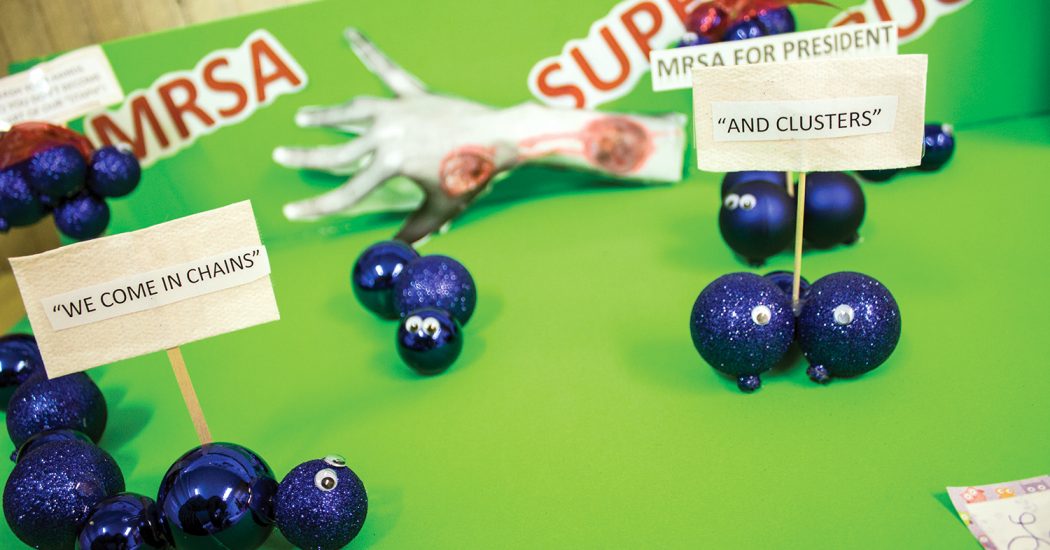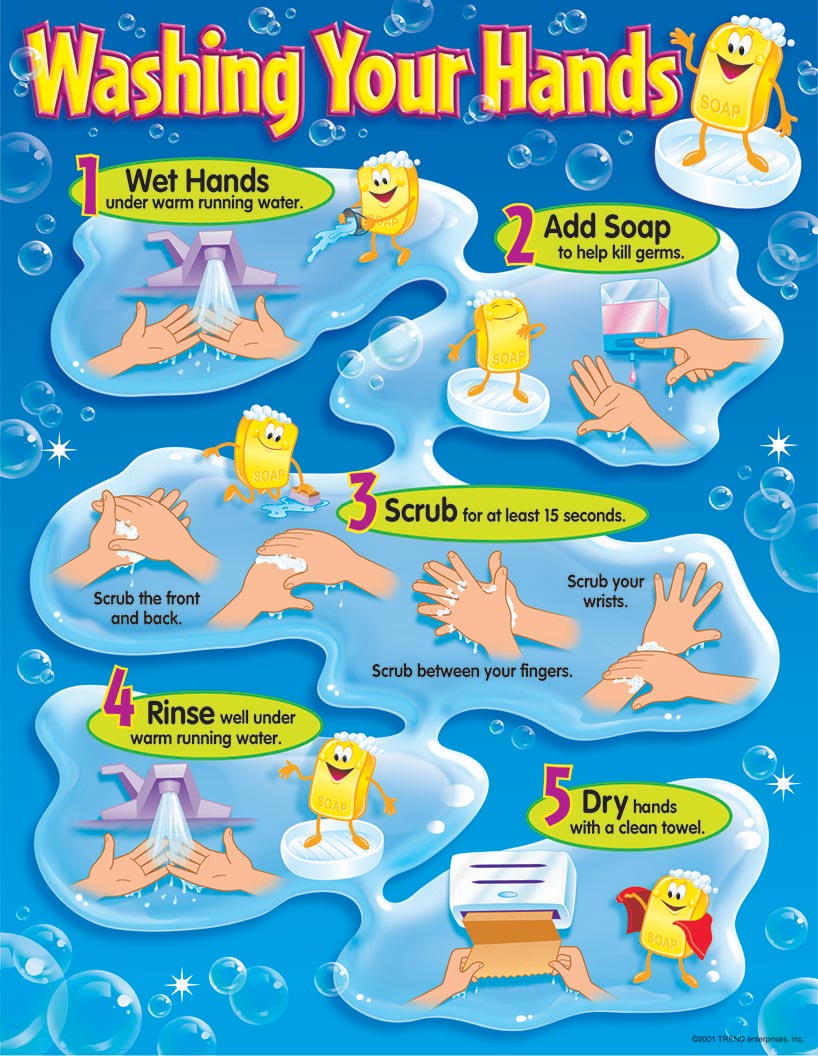There’s only one thing that can break the chain of spreading potentially deadly infectious diseases, and it’s something so simple: proper hand hygiene.

By BRYCE MARTIN
Pioneer Editor | [email protected]
There’s only one thing that can break the chain of spreading potentially deadly infectious diseases, and it’s something so simple: proper hand hygiene.
Last week was National Infectious Disease Prevention Week, celebrated from Oct. 12 to 22, and it was an important landmark for Southwest Healthcare Services.

The Bowman health care provider put special focus on the importantance of proper hand washing when it comes to communicable diseases, such as tuberculosis, E. Coli, CDEPH, VRE and, reportedly the most prevalent in the community, methicillin-resistant Staphylococcus aureus, commonly abbreviated as MRSA.
The timing is especially important considering the current flu season, which spans from mid-September to the end of March.
“It’s easy to help prevent these diseases,” said Judy Jung, infectious prevention coordinator at SWHC, “wash your hands.”
Jung and her committee of various staff members eventually wants the community to become involved in understanding the importance of proper hand hygiene to prevent such diseases. But this year they started with hospital, clinic and long-term care staff.
“It’s all about awareness,” she said.
A contest to create the most striking replication of such infectious diseases, to help put them into visual perspective, brought together Southwest Healthcare employees last week.
“We want you to see what the microbes look like,” Jung said.
Hospital Pharmacist Carol Cornelius, who also sits on the infection prevention committee, said people should be aware, not afraid, of the potential diseases and take the necessary steps in their prevention.
Hand washing is the only protection people have against acquiring diseases like MRSA, which is commonly found in hospitals and out in the community.
MRSA is an infection caused by a type of staph bacteria that’s become resistant to many of the antibiotics used to treat ordinary staph infections, according to the Mayo Clinic. The infections occur in people who have been in hospitals or other health care settings.
When it occurs in these settings, it’s known as health care-associated MRSA.
It can often be fatal.
Because these diseases are now becoming tolerant to over-the-counter antibacterial products, the FDA has begun the drastic step to remove those products from retail shelves, since research has shown the antibacterial products are no longer effective.
“There’s a huge overuse of antibiotics,” Cornelius explained. And that has led to the emergence of what are called superbugs, infectious diseases resistant to treatment.
The only truly effective antibacterial products contain 62 percent alcohol or more. And those are available at health care facilities.
In small communities such as those in Bowman County, spread of disease can be quick. Jung said the most at risk are the elderly. But it also starts with children and parents, educating them on the steps to ensure they are keeping their hands clean.
“I don’t remember my mother always saying, ‘Wash your hands,’” Jung said. “But it’s much more common to hear these days, which is good.”
Still, just putting your hands under water with a little soap isn’t doing enough, Jung explained, there are specific steps to follow.
“The average person doesn’t wash their hands properly,” she said. “It takes friction.”
In efforts to promote awareness, Southwest Healthcare is taking added steps to better enforce existing practices of proper hygiene at its facilities.
Part of the National Infectious Disease Prevention Week was the rollout of updated signage for employees and visitors and to further education for all employees on how to handle infectious disease prevention.
Next year the plan is for Southwest Healthcare to involve the community, perhaps with a day fair or a similar event.
“We want to bring this knowledge to the community,” Cornelius said. “People need to know to take care of themselves and be responsible.
“We want to keep the staff and community safe.”






